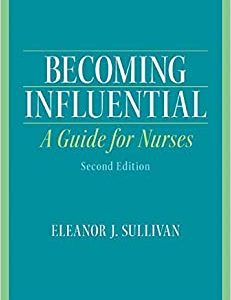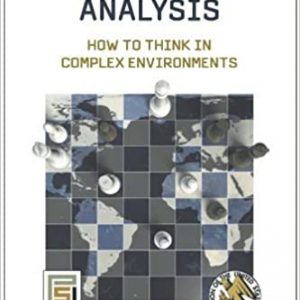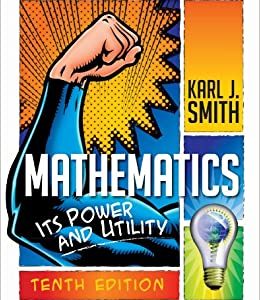Overview
The most accessible, practical, and affordable introduction to ethical theory and moral reasoning.
Beginning Ethics?provides students with the theoretical and logical tools they need to navigate the ethical quandaries in their daily lives. Clear writing, practical pedagogy, an emphasis on critical thinking, and an affordable price make?Beginning Ethics?the perfect introduction to one of the most important courses in the college curriculum.
Product Details
| ISBN-13: | 9780393937909 |
|---|---|
| Publisher: | Norton, W. W. & Company, Inc. |
| Publication date: | 08/01/2014 |
| Edition description: | New Edition |
| Pages: | 192 |
| Sales rank: | 852,192 |
| Product dimensions: | 8.40(w) x 5.40(h) x 0.60 |
About the Author
Lewis Vaughn is an independent scholar and freelance writer living in Amherst, New York. He is the author of several leading textbooks, including Beginning Ethics: An Introduction to Moral Philosophy.
Table of Contents
Preface 11
Chapter 1 Ethics and the Moral Life 13
The Ethical Landscape 16
The Elements of Ethics 18
The Preeminence of Reason 19
The Universal Perspective 19
The Principle of Impartiality 20
The Dominance of Moral Norms 21
Religion and Morality 21
Believers Need Moral Reasoning 22
When Conflicts Arise, Ethics Steps in 23
Moral Philosophy Enables Productive Discourse 23
Keywords 26
Exercises 26
Review Questions 26
Essay Questions 27
Ethical Dilemmas 27
Chapter 2 Relativism and Emotivism 29
Subjective Relativism 31
Cultural Relativism 32
Emotivism 40
Keywords 43
Exercises 44
Review Questions 44
Essay Questions 44
Ethical Dilemmas 45
Chapter 3 Moral Arguments 46
Claims and Arguments 47
Arguments Good and Bad 51
Implied Premises 56
Moral Statements and Arguments 58
Testing Moral Premises 62
Assessing Nonmoral Premises 65
Avoiding Bad Arguments 66
Begging the Question 67
Equivocation 67
Appeal to Authority 68
Slippery Slope 68
Appeal to Emotion 69
Faulty Analogy 69
Appeal to Ignorance 70
Straw Man 71
Appeal to the Person 71
Hasty Generalization 72
Keywords 72
Exercises 74
Review Questions 74
Essay Questions 75
Argument Exercises 75
Ethical Dilemmas 76
Chapter 4 Moral Theories 78
Theories of Right and Wrong 78
Major Theories 81
Consequentialist Theories 81
Nonconsequentialist Theories 82
Evaluating Theories 84
Criterion 1 Consistency With Considered Judgments 86
Criterion 2 Consistency With Our Moral Experience 87
Criterion 3 Usefulness In Moral Problem Solving 88
Keywords 89
Exercises 90
Review Questions 90
Essay Questions 90
Ethical Dilemmas 91
Chapter 5 Ethical Egoism 92
Applying the Theory 94
Evaluating the Theory 96
Keywords 101
Exercises 101
Review Questions 101
Ethical Dilemmas 101
Chapter 6 Utilitarianism 103
Applying the Theory 109
Evaluating the Theory 110
Learning from Utilitarianism 117
Keywords 117
Exercises 118
Review Questions 118
Ethical Dilemmas 118
Chapter 7 Kantian Ethics 120
Applying the Theory 125
Evaluating the theory 126
Learning from Kant’s Theory 129
Keywords 129
Exercises 130
Review Questions 130
Ethical Dilemmas 130
Chapter 8 Natural Law Theory 132
Applying the Theory 135
Evaluating the Theory 137
Learning from Natural Law 138
Keyword 139
Exercises 139
Review Questions 139
Ethical Dilemmas 140
Chapter 9 Social Contract Theory 141
Hobbes’s Theory 142
Pluses and Minuses 144
Keyword 146
Exercises 146
Review Questions 146
Ethical Dilemmas 147
Chapter 10 The Feminist Challenge 148
Feminist Ethics 149
The Ethics of Care 151
Keywords 152
Exercises 152
Review Questions 152
Essay Questions 153
Ethical Dilemmas 153
Chapter 11 Virtue Ethics 155
Virtue in Action 157
Evaluating Virtue Ethics 158
Learning from Virtue Ethics 161
Keywords 162
Exercises 163
Review Questions 163
Ethical Dilemmas 163
Chapter 12 A Moral Theory 165
Moral Common Sense 165
Building a Moral Theory 166
Prima Facie Principles 167
Three Rules 169
Self-Evidence 174
Keywords 176
Exercises 176
Review Questions 176
Essay Questions 177
Ethical Dilemmas 177
Further Reading 179
Glossary 185
Index 189











